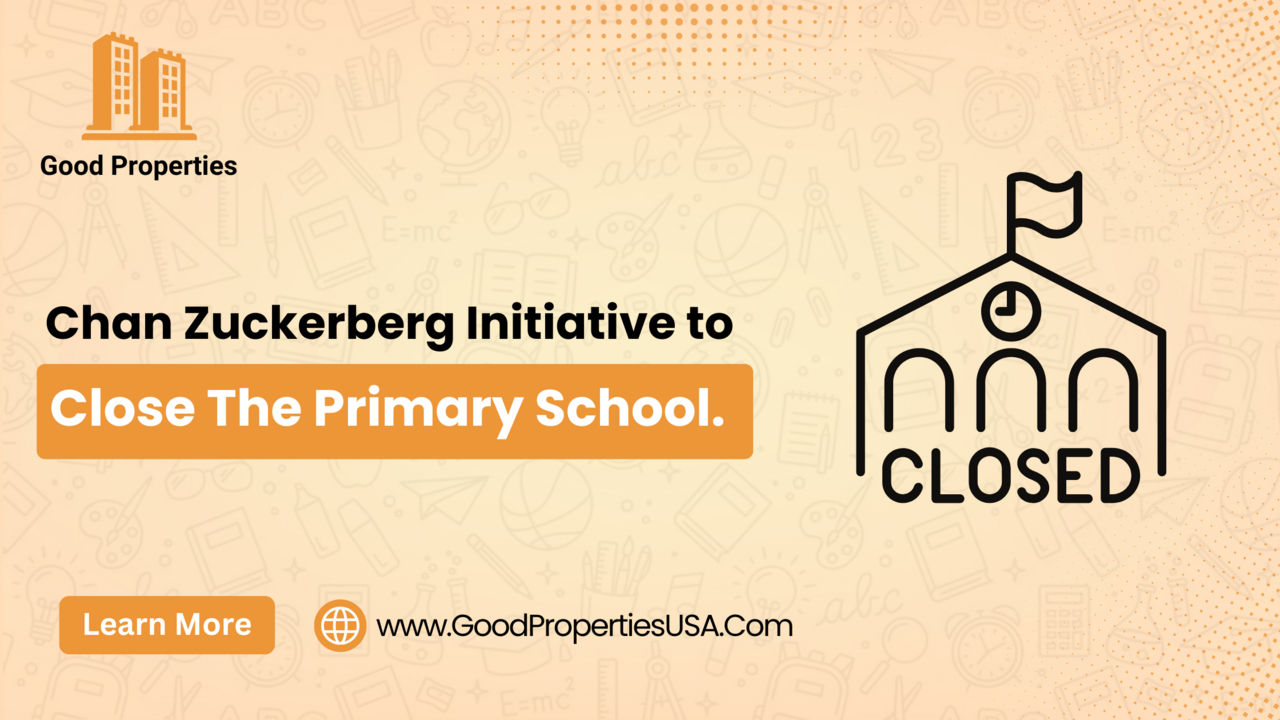
In 2016, when Dr. Priscilla Chan and Facebook founder Mark Zuckerberg announced the launch of The Primary School, the education and nonprofit sectors watched closely. Backed by the Chan Zuckerberg Initiative (CZI), the school was envisioned not merely as another charter or private school, but as a bold, integrated model of education, where academic learning would be deeply intertwined with healthcare, family support, and emotional well-being.
Now, less than a decade later, this ambitious project is drawing to a close.
The Vision: Redefining What a School Could Be
Located in East Palo Alto and later expanded to San Leandro, California areas historically underserved in terms of educational and healthcare infrastructure. The Primary School set out with a powerful mission: “Every child, regardless of background, should enter adulthood with the skills and support needed to live a fulfilling life.”
This mission translated into a whole-child approach that began even before birth. Expectant mothers were provided with prenatal support. As children grew, they received coordinated medical care, mental health services, and academic instruction all under the same institutional umbrella. It wasn’t just a school; it was a life hub for families in need.
The model was ambitious, comprehensive, and deeply compassionate, offering everything from free meals and diapers to regular pediatric visits and parent coaching. And because it was tuition-free, it removed a significant barrier for low-income families.
The Cost of Innovation
But innovation comes at a price. Operating such an expansive model required significant funding. In 2022, donations to the school amounted to $8 million, but by 2023, that figure had dropped to $3.7 million, well short of the school’s $12.4 million annual operating budget.
Even with the vast resources of CZI (funded with billions in Facebook stock), the initiative announced in April 2025 that The Primary School would close at the end of the 2025–2026 academic year.
For many, this decision has been met with shock and disappointment. Parents, who had placed their trust in a system that promised long-term commitment and transformation, now feel abandoned.
“We were told this was something that would support not just our children but generations,” one East Palo Alto parent said. “Now we’re left figuring out how to fill all the gaps this school was filling for us.”
A Strategic Shift or a Change in Priorities?
The closure also coincides with what appears to be a shift in CZI’s philanthropic priorities. Reports suggest a growing focus on technology-driven solutions, such as artificial intelligence in education and health science research, possibly at the expense of more community-grounded, human-centered initiatives like The Primary School.
Additionally, insiders note that CZI has been pulling back from high-touch community models and diversity, equity, and inclusion (DEI) efforts, a pivot that some critics argue reflects a broader retreat from social justice philanthropy.
This evolution raises important questions:
- Can truly transformative, wraparound education models be sustained by private philanthropy alone?
- Should billion-dollar initiatives pivot so easily from community-based commitments to experimental technologies?
- What responsibility do philanthropists have to communities when experimental models falter?
Community Backlash and A Commitment to Continue… Differently
To address the impact of the school’s closure, the Chan Zuckerberg Initiative has pledged $50 million over five years to support the affected communities. These funds will go toward:
- Education savings plans for children
- Early childhood programs
- Family support and health services in East Palo Alto, Belle Haven, and the East Bay
While appreciated by some, many argue that no amount of redirected funding can replace the trust and holistic support that the school represented. After all, you cannot replicate a school’s unique culture or relationships with a donation, no matter how generous.
A Legacy Worth Remembering
Despite its closure, The Primary School leaves behind a legacy that shouldn’t be forgotten:
- It proved that an education model built around the whole family, not just standardized tests, can improve children’s lives.
- It provided health and emotional support as part of daily schooling, not as external add-ons.
- And most importantly, it reminded us that when low-income families are given access to the same quality of care and education as wealthier ones, amazing things happen.
Lessons for the Future of Philanthropy
The story of The Primary School is not simply about one institution’s closure, it’s a cautionary tale for modern philanthropy.
Big ideas need long-term, consistent support. Communities deserve reliability, not just innovation. And when it comes to children, commitments should span decades, not just grant cycles.
As we look ahead, the challenge is clear: if we want to create educational models that truly uplift entire communities, we must combine visionary thinking with grounded, patient, and sustainable investment, the kind that lasts not just for one generation, but for many to come.
While the closing of The Primary School marks the end of a bold and compassionate chapter, it’s also a reminder of how essential it is to support nonprofits with the resources they need to endure and grow
At Good Properties, we believe in empowering missions, not just with space, but with the support to thrive. If you’re a nonprofit looking to scale impact sustainably, we offer affordable co-working spaces starting at just $400/month, with up to one year rent-free for eligible organizations, plus built-in services like marketing, web development, and accounting.
Let’s make your mission last.
Call (862) 666-1636 or visit GoodPropertiesUSA.com to book a tour or learn more.
Are you part of a Non-Profit? Stay Informed and Inspired. Follow GoodProperti

